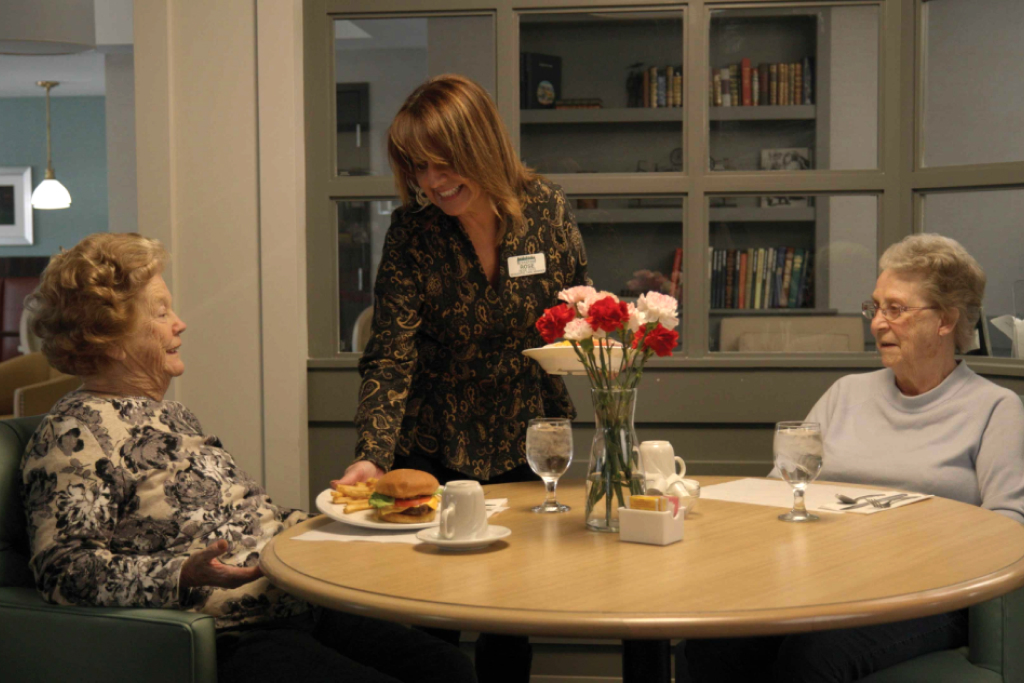
Aging is a natural part of life. While it comes with its own set of challenges, there are also many common myths about aging. These misconceptions often perpetuate negative stereotypes about older adults. These older adults may internalize them and feel like they can’t fully embrace the golden years.
Negative stereotypes can also lead to ageism. Younger people may start to build negative attitudes toward older adults, simply based on a myth.
In this blog post, we will debunk 10 common myths and stereotypes of aging, in order to better understand and appreciate growing older.
Myth #1: Inevitable Decline in Health
While it’s true that some physical and cognitive changes occur with age, not all older adults experience a catastrophic decline in health.
In fact, many older adults maintain good physical and mental health well into their golden years. This is supported by regular exercise, a healthy diet, and engaging in activities that challenge the mind.
Learn About Brentwood’s Senior Living Community & Services
Myth #2: Older Adults are Not Interested in Learning
Age is not a barrier to learning or trying new things. Many seniors have a strong desire to learn and pursue new hobbies, interests, and skills.
Lifelong learning has been shown to have numerous cognitive and social benefits. You know the saying, “You can’t teach an old dog new tricks?” Well, older adults are just as capable of acquiring new knowledge as younger folks.
This negative stereotype dismisses their capacity for learning, which can result in missed opportunities for personal growth, cognitive stimulation, and social engagement.
Myth #3: They are Not Interested in Exercise
Assuming seniors are not interested in exercise is just another myth about aging. Many older adults recognize the importance of staying physically active. In fact, they engage in regular exercise to maintain their health and well-being.
Physical activity can help older adults maintain their mobility, strength, and overall health. They tend to enjoy activities like walking, swimming, yoga, and strength training. Staying active can greatly improve their quality of life.
Myth #4: Memory Loss or Dementia is Imminent
While some older adults may experience cognitive decline, not everyone will experience memory loss or dementia. Many maintain good cognitive function and mental acuity throughout their lives.
Normal age-related memory changes are common. This does not necessarily indicate a more serious issue. It’s important to recognize and respect the individual cognitive abilities of older adults and not make assumptions based solely on their age.
Myth #5: Older Adults are Lonely & Isolated
Sometimes when we think of seniors, we imagine them being lonely and experiencing social isolation. However, that is not the case for every single one of them.
Many seniors have strong social connections and lead active social lives. They engage in activities such as volunteering, participating in specific clubs, and spending time with family and friends.
Social engagement is important for mental, emotional, and physical well-being at any age. Older adults tend to continue maintaining their established social lives.
Myth #6: Seniors are Not Contributing Members of Society
Older adults continue to make significant contributions to society in various ways. Their years of accumulated experience, wisdom, and knowledge are beneficial to their communities, workplaces, and families.
Expanding upon older adults not being lonely, many seniors engage in volunteer work, mentoring, and other meaningful activities that positively impact the people around them.
Myth #7: All Older Adults are Frail
The stereotype that older adults are frail can be harmful. It perpetuates the belief that older adults are helpless and incapable of taking care of themselves.
In reality, many older adults lead active, independent lives. They are able to engage in various activities, maintain social connections, and contribute to their communities.
Treating older adults as frail and dependent on others can limit their opportunities for growth and participation in society.
Myth #8: Seniors are Not Interested in Technology
It may very well be true that not all older adults are tech-savvy. (Although just think about how hard it is to keep up with all the new advancements in tech!) However, many seniors are interested in and actively use technology—like smartphones, computers, and social media—on a daily basis.
Using technology helps older adults stay connected to loved ones, access information and entertainment, and engage in online communities. In fact, social media can be a valuable tool for combating social isolation and loneliness.
Myth #9: Older Adults are Not Interested in Fashion
Aging does not mean losing interest in fashion or style. Growing older is always en vogue!
Many older adults take pride in their appearance. They enjoy expressing their personal style through clothing, and accessories. Fashion and style preferences may evolve with age and trends, but seniors can still have a keen sense of fashion and enjoy looking good.
Myth #10: Unhappy, Grumpy Attitudes
The stereotype of seniors being unhappy and grumpy is harmful and just plain rude. It can lead to negative interactions while easily dismissing the idea of positive relationships.
In reality, older adults experience a wide range of emotions, just like everyone else. While some seniors may face challenges—such as health issues or the loss of loved ones—that cause negative moods, many also experience happiness, contentment, and a positive outlook.
Aging with Grace
In the end, aging is a multifaceted stage of life. It can be clouded by myths and stereotypes, so it’s important to never judge a book by its cover. We all need to better understand and appreciate the experiences and contributions of seniors—and understand the harm in ageism.
It’s important to approach aging with an open mind, while celebrating older adults in our communities.
At Brentwood, we know that older adults are quite capable of leading rich, fulfilling lives. We provide them opportunities to maintain their health, connect with their friends and family, continue learning, and so much more. We’re dedicated to service with dignity.
If you’d like to learn more and tour our community, reach out to us today.



